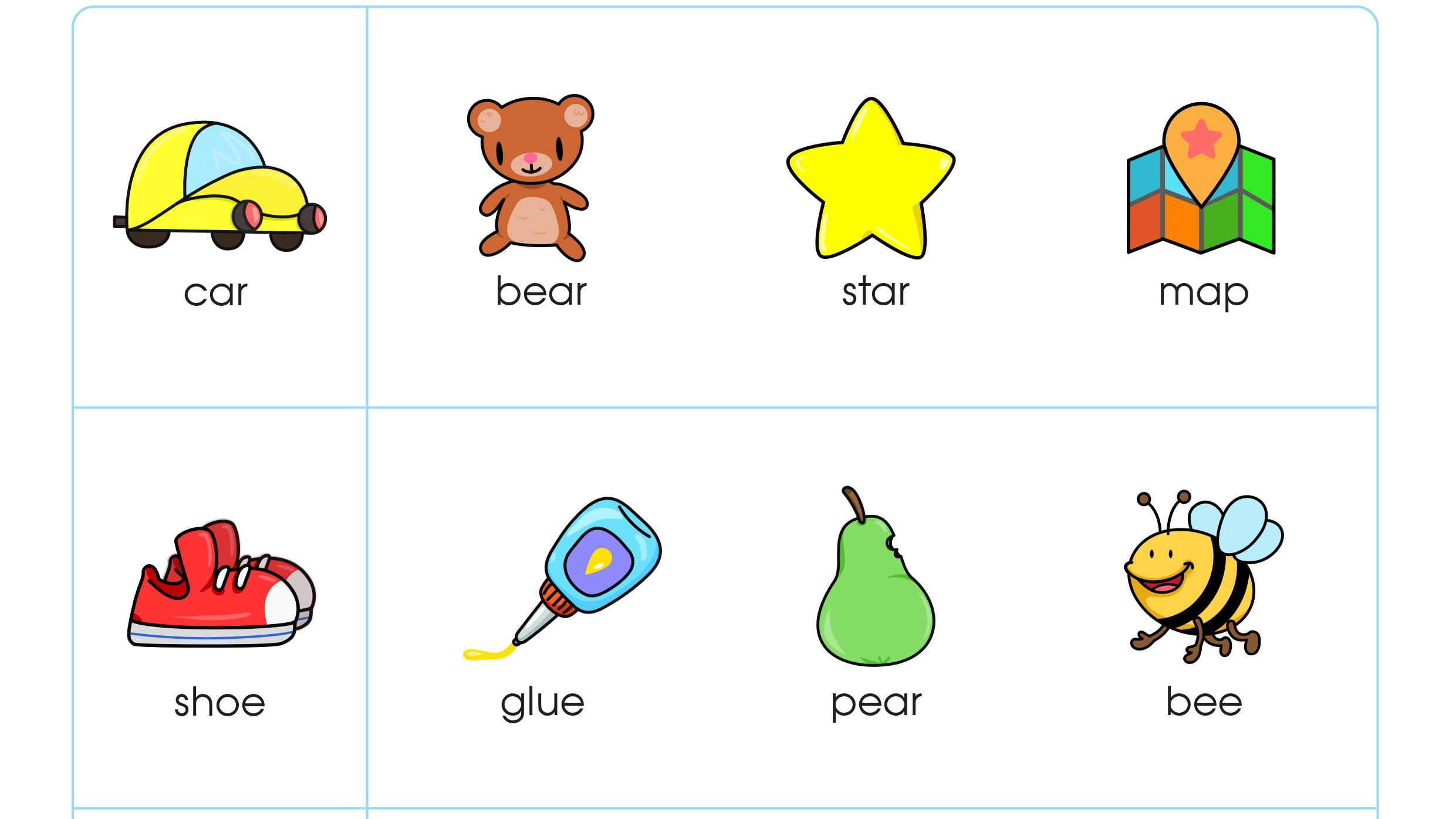Rhyming Words Worksheets for Ages 5-7
21 filtered results
-
From - To
Discover our engaging Rhyming Words Worksheets designed specifically for children aged 5-7! These interactive resources will help young learners enhance their phonemic awareness and develop essential reading skills. Our thoughtfully crafted worksheets include a variety of fun activities such as matching, filling in blanks, and identifying rhyming pairs, all aimed at improving vocabulary and pronunciation. With colorful illustrations and age-appropriate content, your little ones will enjoy exploring the exciting world of rhymes. Perfect for classroom use or at-home learning, these worksheets promote a love for reading while fostering creativity and confidence in language skills. Start your child's rhyming journey today!
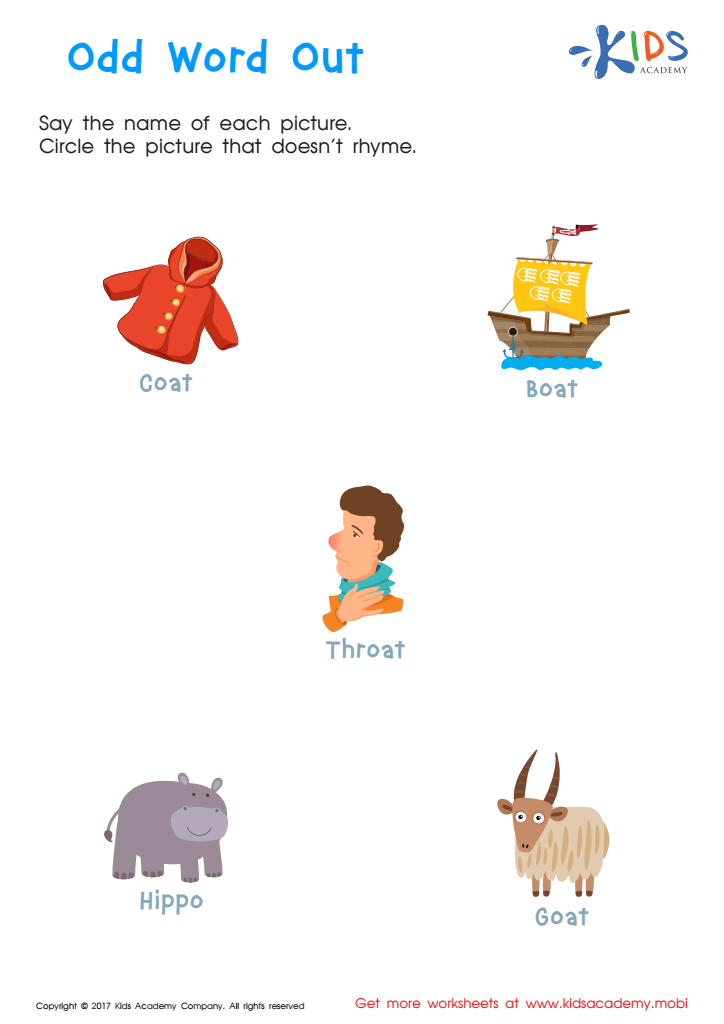

Odd Word Out Rhyming Worksheet
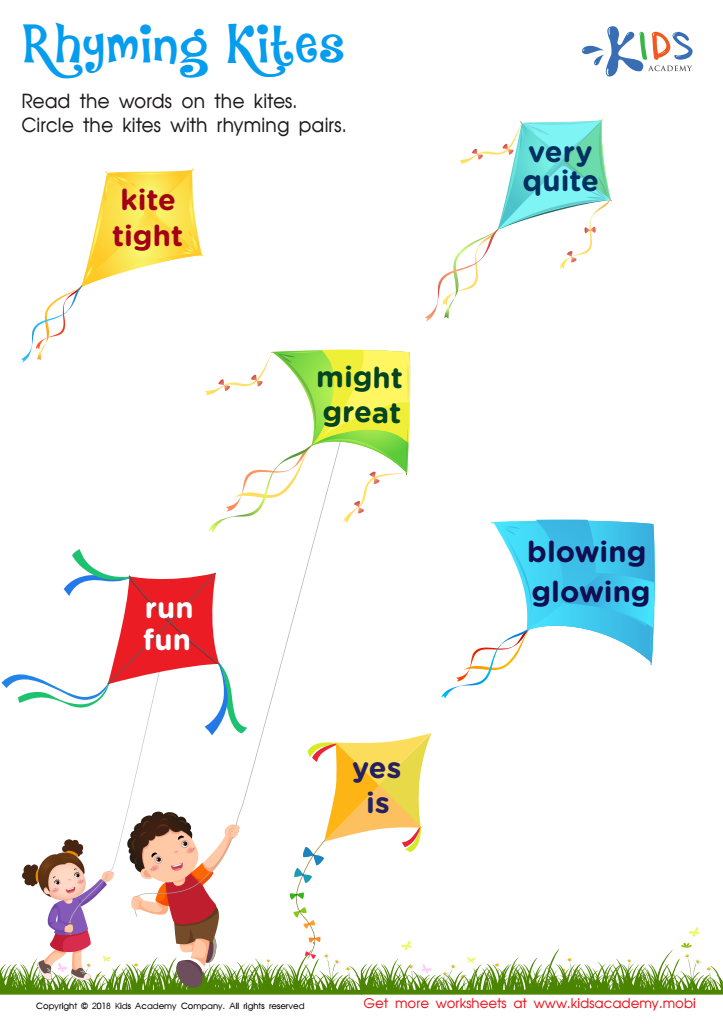

Rhyming Kites Worksheet
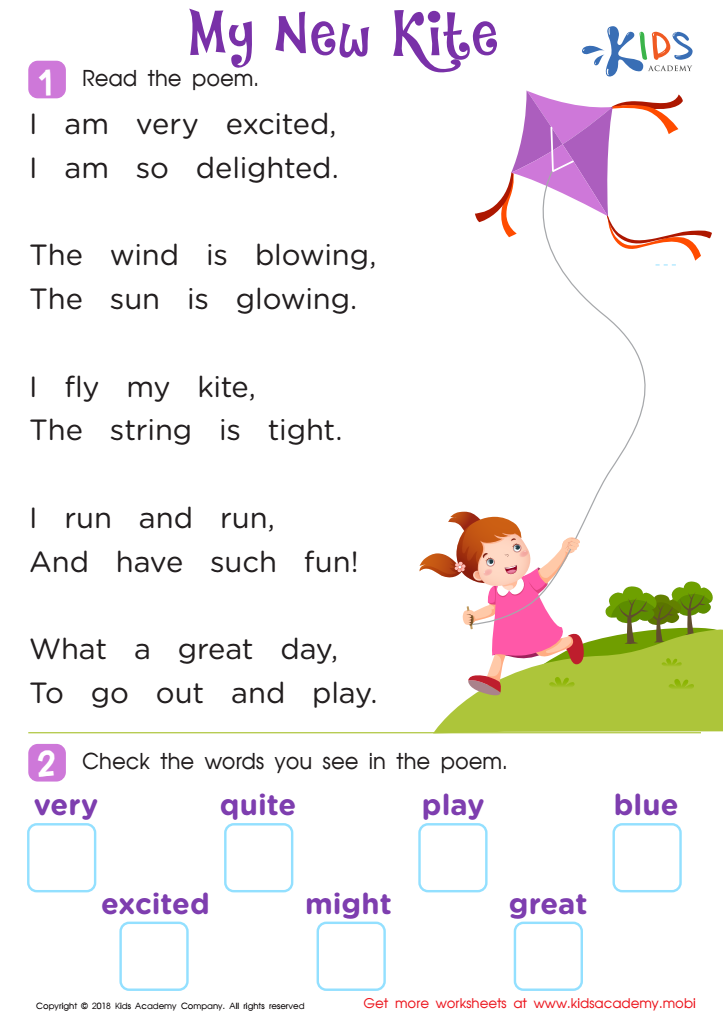

Poem: My New Kite Worksheet
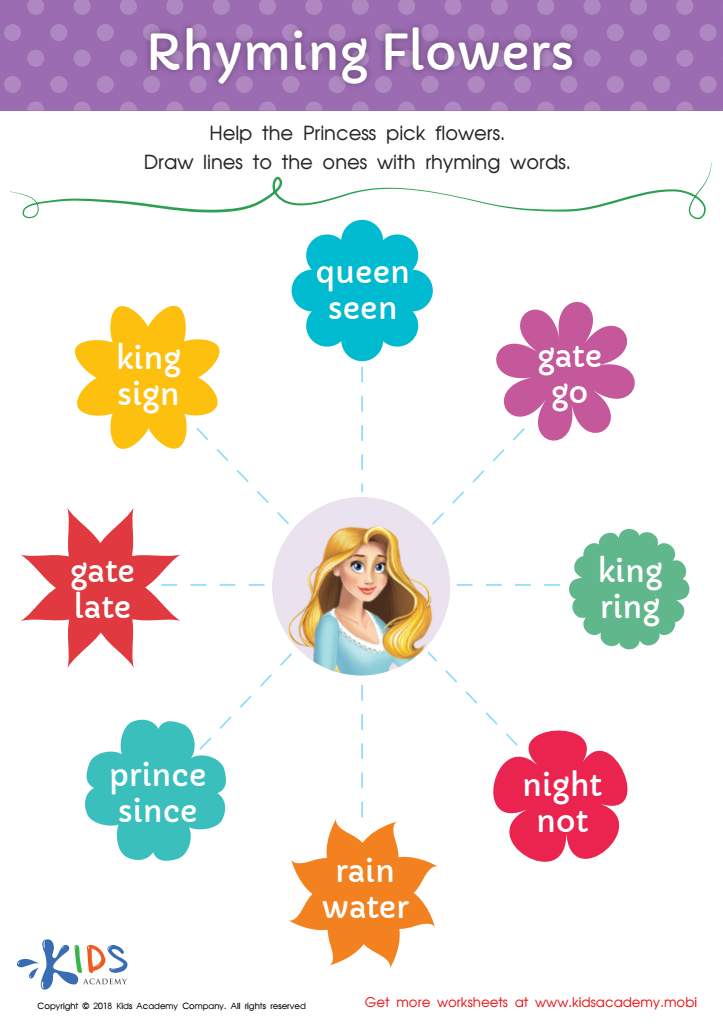

Rhyming Flowers Worksheet
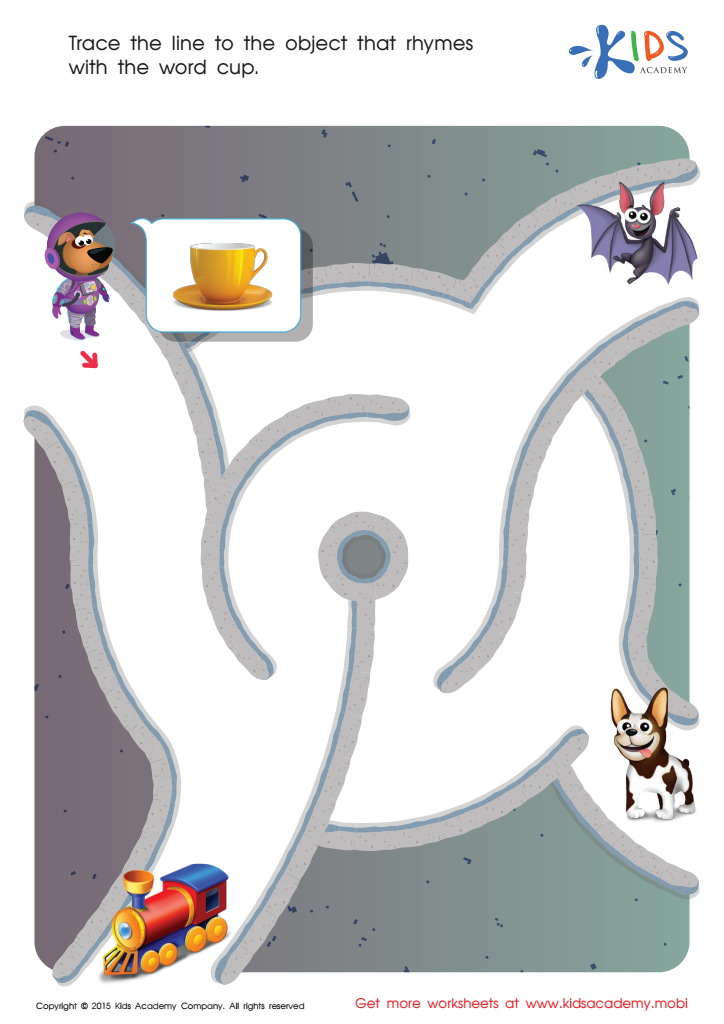

Cup Rhyming Words Worksheet


Rhyming Words Rhyming Worksheet
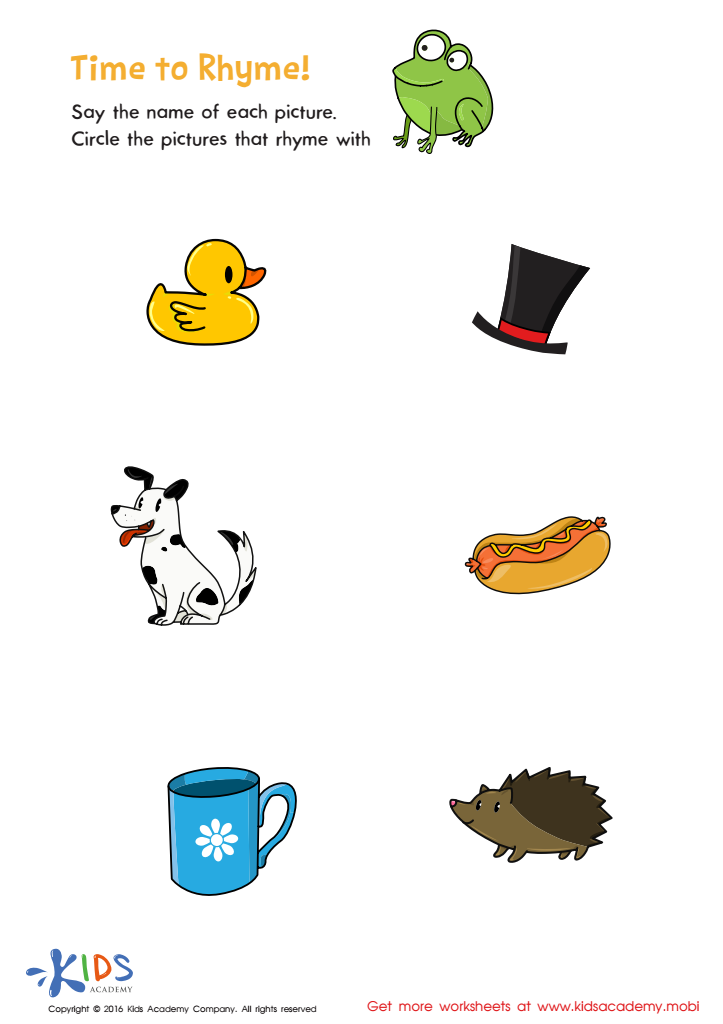

Rhyming Worksheet: Time to Rhyme Rhyming Worksheet
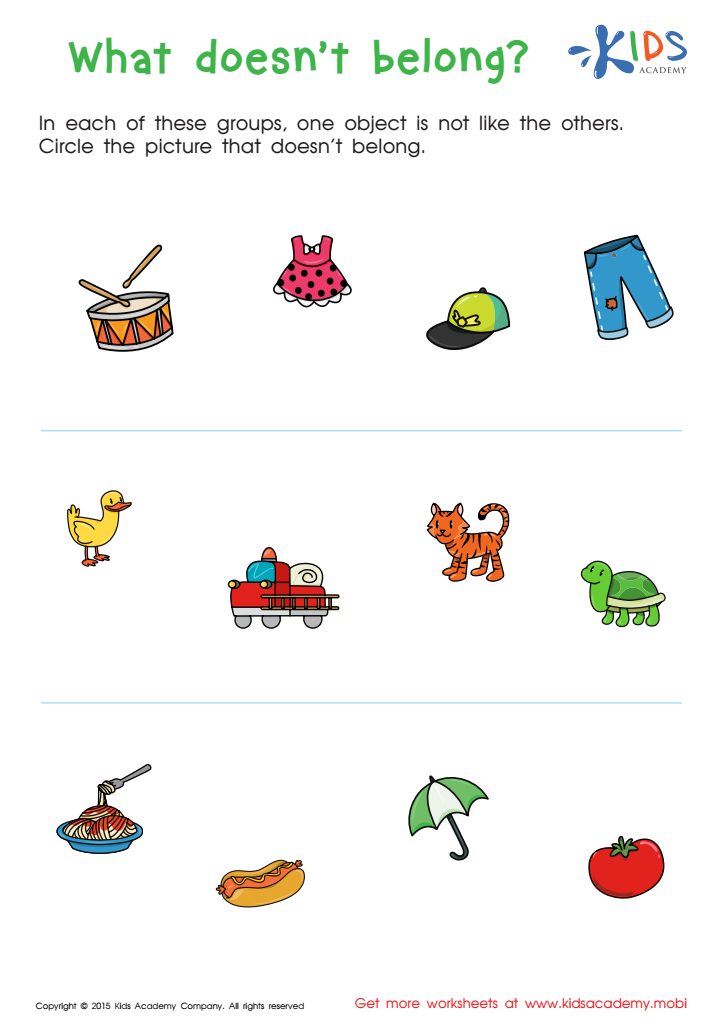

First Words: What Doesn't Belong Worksheet
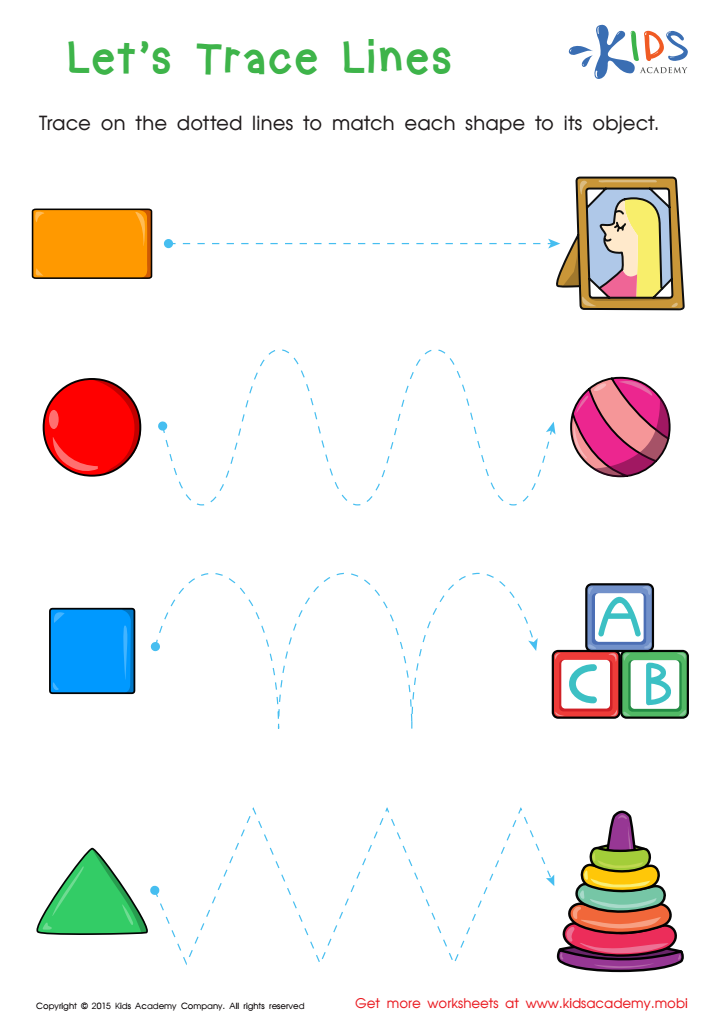

First Words: Let's Trace Lines Worksheet


First Words: Picture Rhymes Worksheet
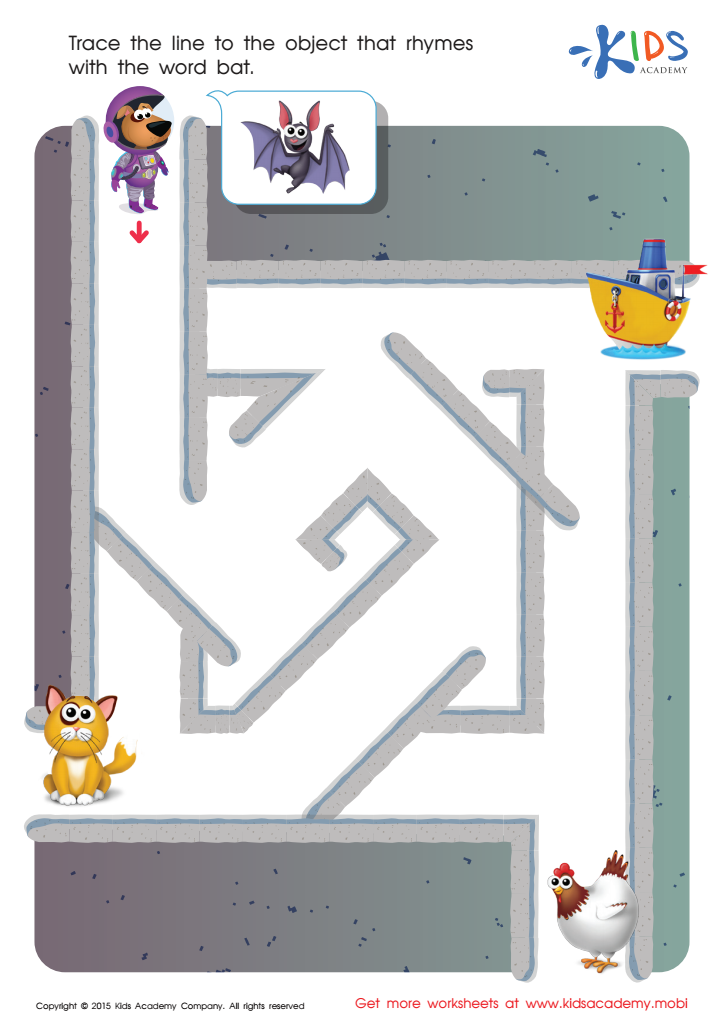

Bat Rhyming Words Worksheet
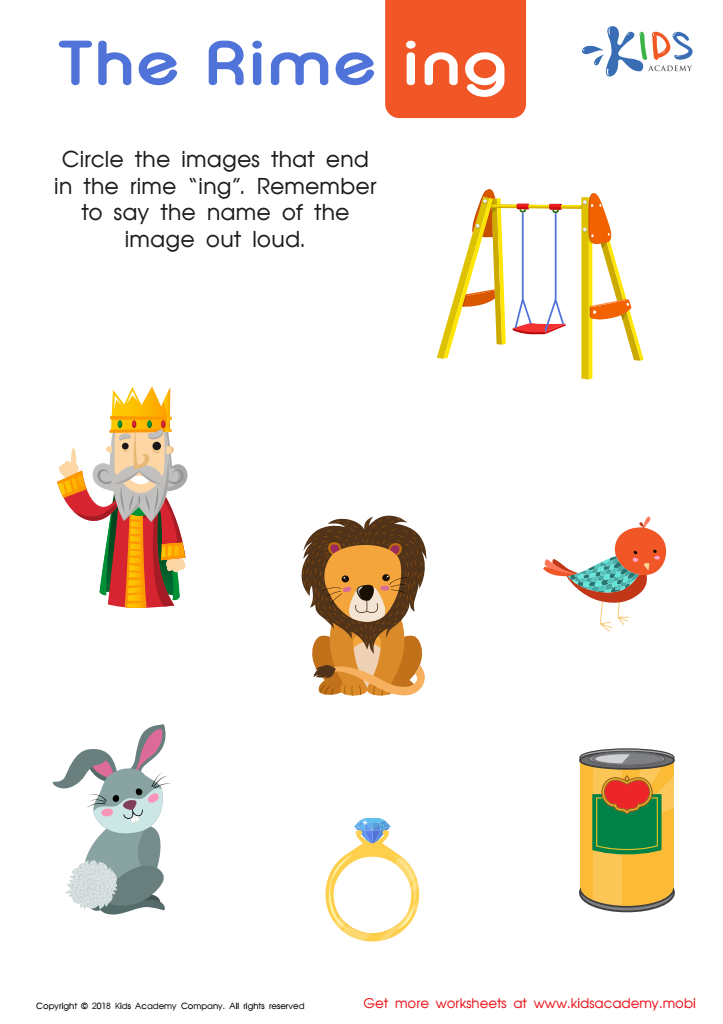

The Rime "ing" Worksheet
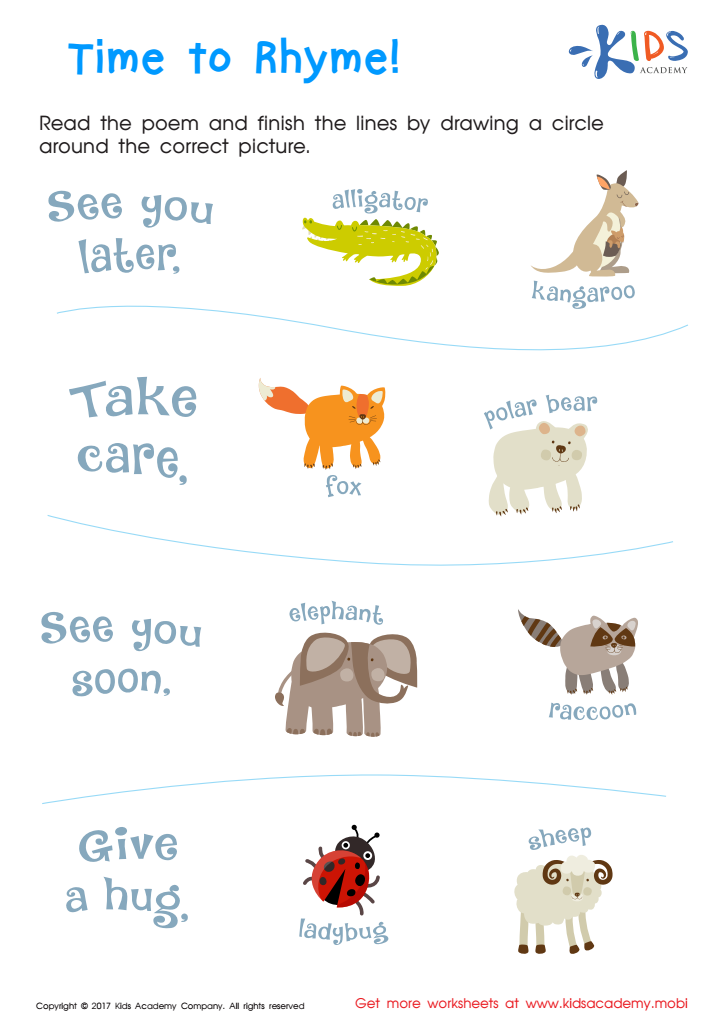

Time to Rhyme Rhyming Worksheet
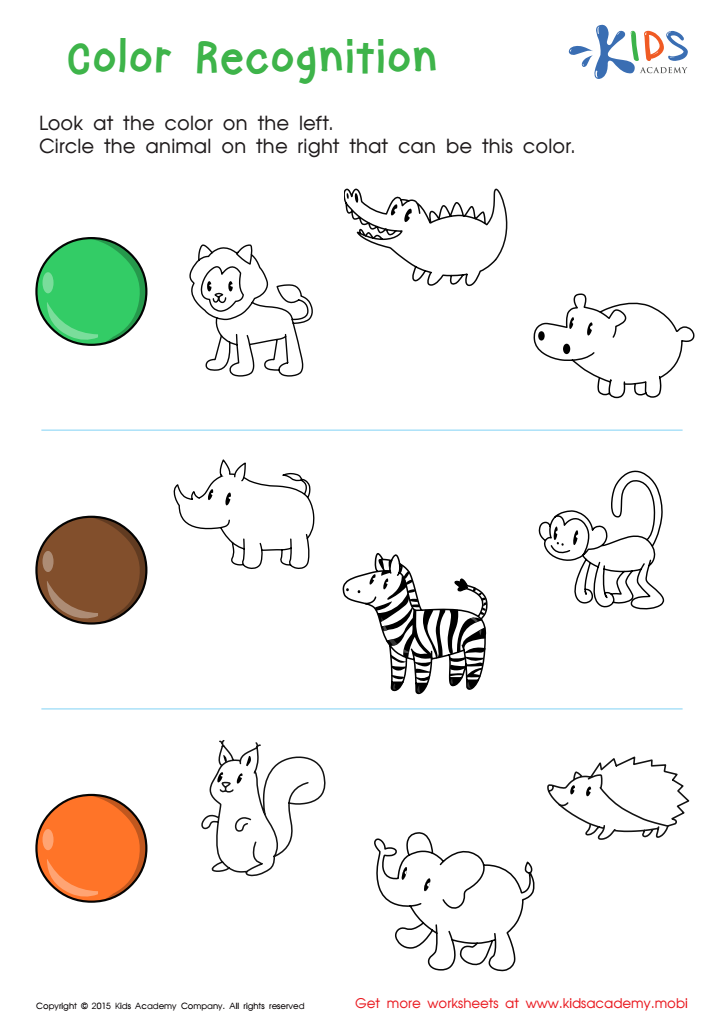

First Words: Color Recognition Worksheet
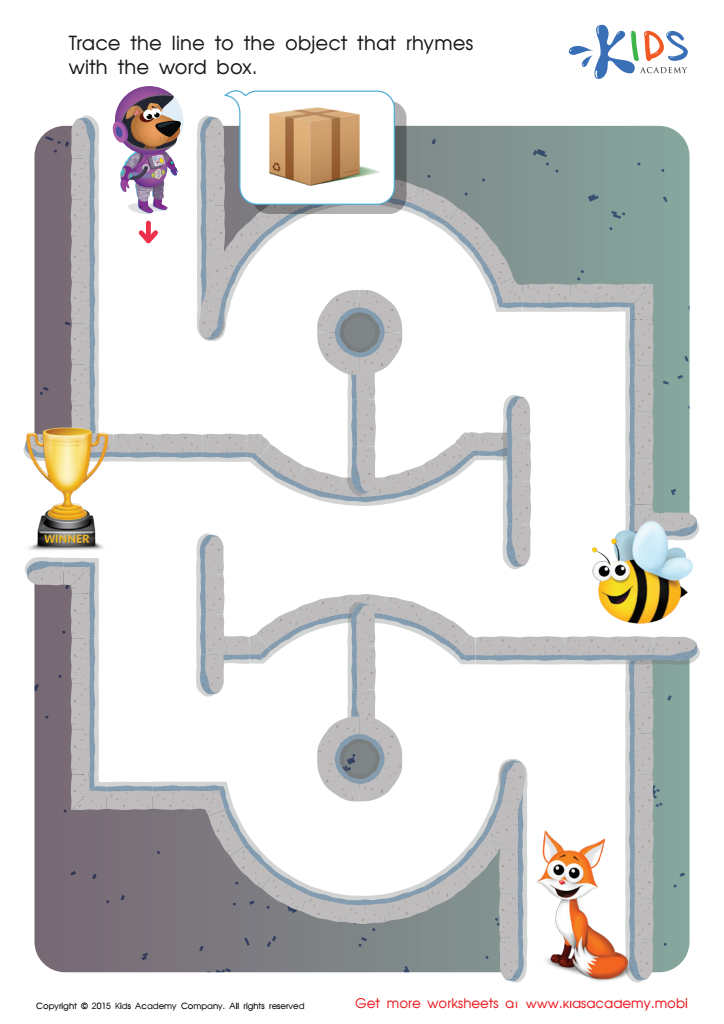

Box Rhyming Words Worksheet
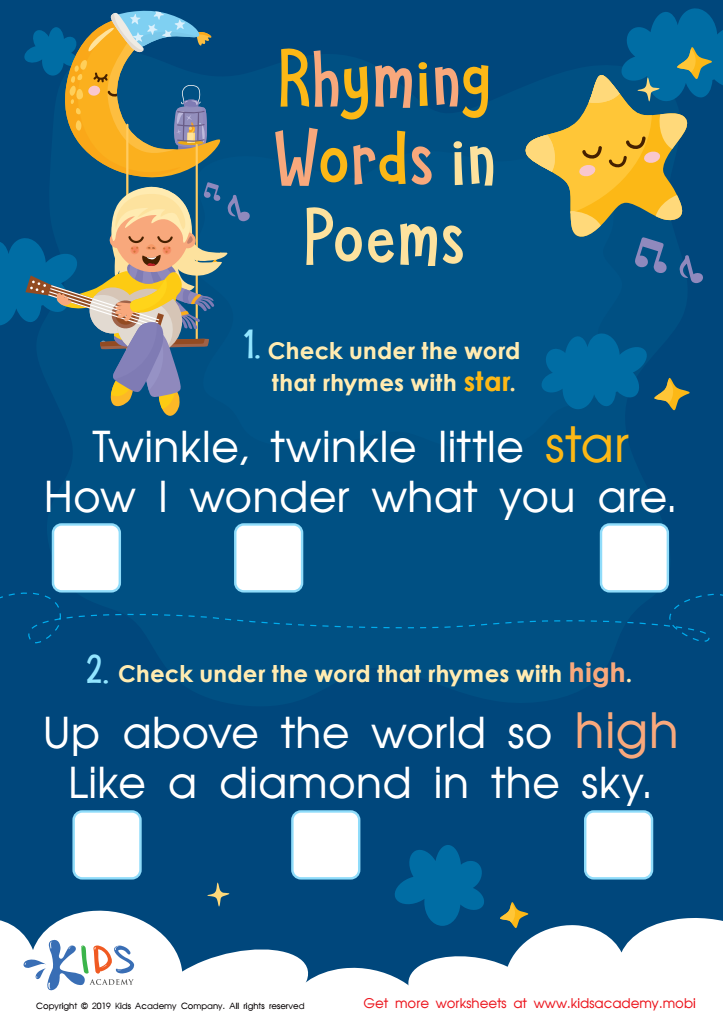

Rhyming Words in Poems Worksheet
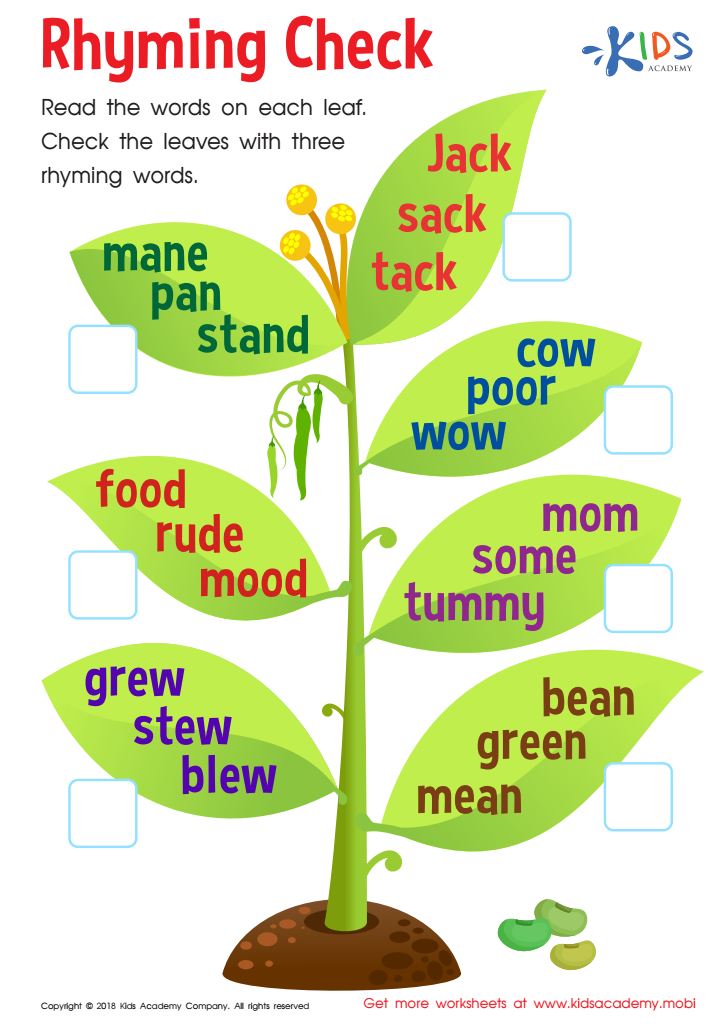

Rhyming Check Worksheet
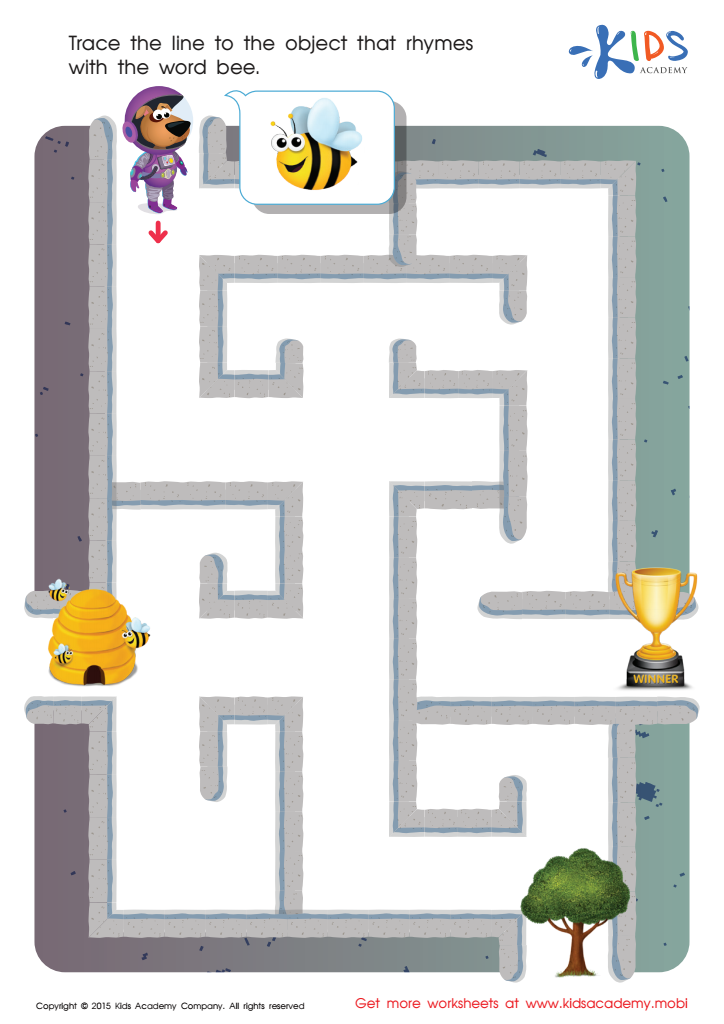

Bee Rhyming Words Worksheet
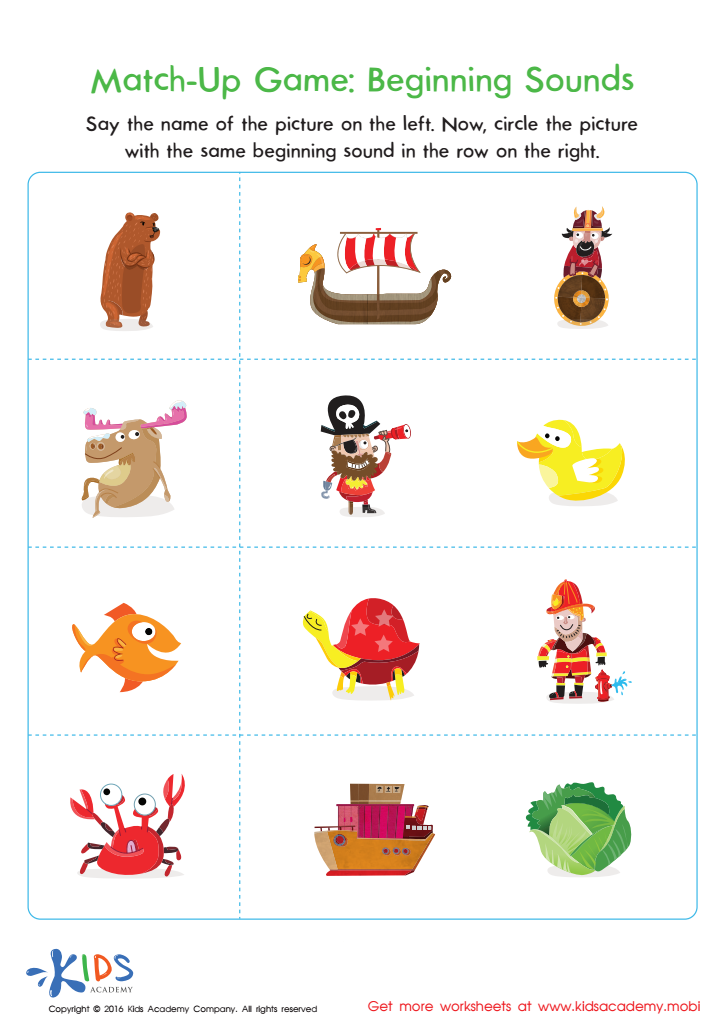

Match–Up Game: Beginning Sounds Worksheet
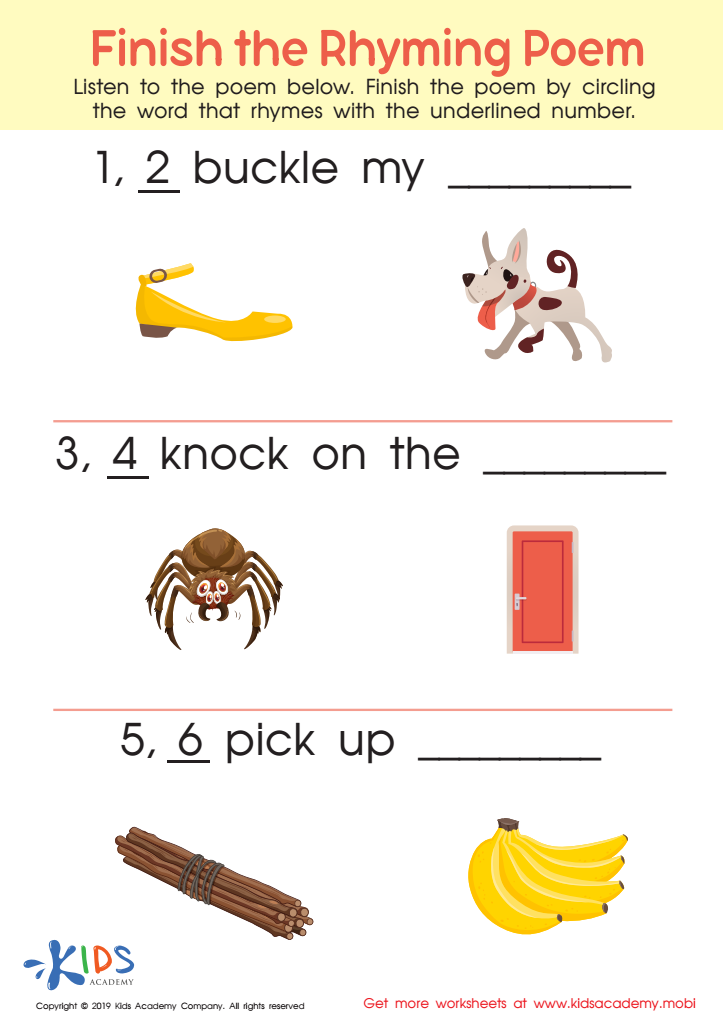

Finish Rhyming Poem Worksheet
Rhyming words play a crucial role in early childhood literacy development, particularly for children aged 5-7. Firstly, they enhance phonemic awareness, which is the ability to hear and manipulate sounds in words. Recognizing patterns in rhymes helps children decode new words and boosts their reading skills. When kids understand that words can share similar sounds, they become more proficient readers and better spellers.
Secondly, rhyming boosts vocabulary acquisition. Exposing children to rhymes helps them learn new words in a fun and engaging manner. This playful exploration of language ignites their curiosity and encourages them to experiment with words, leading to a stronger vocabulary foundation.
Additionally, rhyming fosters memory retention. Rhymes stick in children’s minds, making it easier for them to recall information. This is particularly beneficial during activities like storytelling or poetry, where rhythm and rhyme enhance memorization.
Finally, on a social and emotional level, engaging with rhyming words promotes a love for language and literacy. It adds an enjoyable element to learning, encouraging children to participate in shared reading experiences with parents or teachers. In essence, focusing on rhyming words nurtures both academic and personal growth, making it essential for parents and teachers to prioritize in early education.
 Assign to My Students
Assign to My Students






.jpg)
